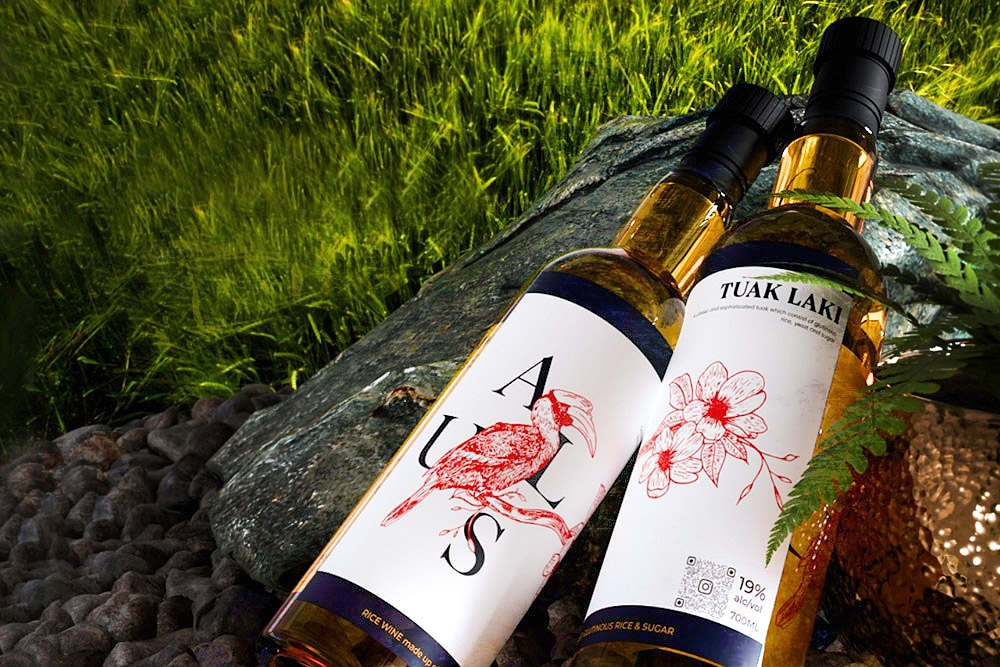
KUALA LUMPUR, Aug 9 — There’s a certain gravity when Ayden Chong talks about tuak – not a performative zeal, but something closer to reverence.
Not the reverence of nostalgia, mind you, but the kind that comes from realising you’re holding something precious in your hands: culture, memory, a people’s pride.
Chong, a tuak aficionado from Ipoh, is one of three friends who co-founded Tuak Alus, a rice wine brand with roots in Sarawak’s longhouses.
What began in 2018 as a quiet exploration of tradition has since become a mission: to preserve, modernise and, in his words, “celebrate Dayak heritage through rice wine.”
That mission first stirred during Chong’s inaugural Gawai Harvest Festival in Betong, Sarawak. The visceral warmth of the celebrations – the open doors, open hearts, and the generous pouring of homemade tuak – left a mark.
He returned to the peninsula not just with stories, but with a sense of purpose.
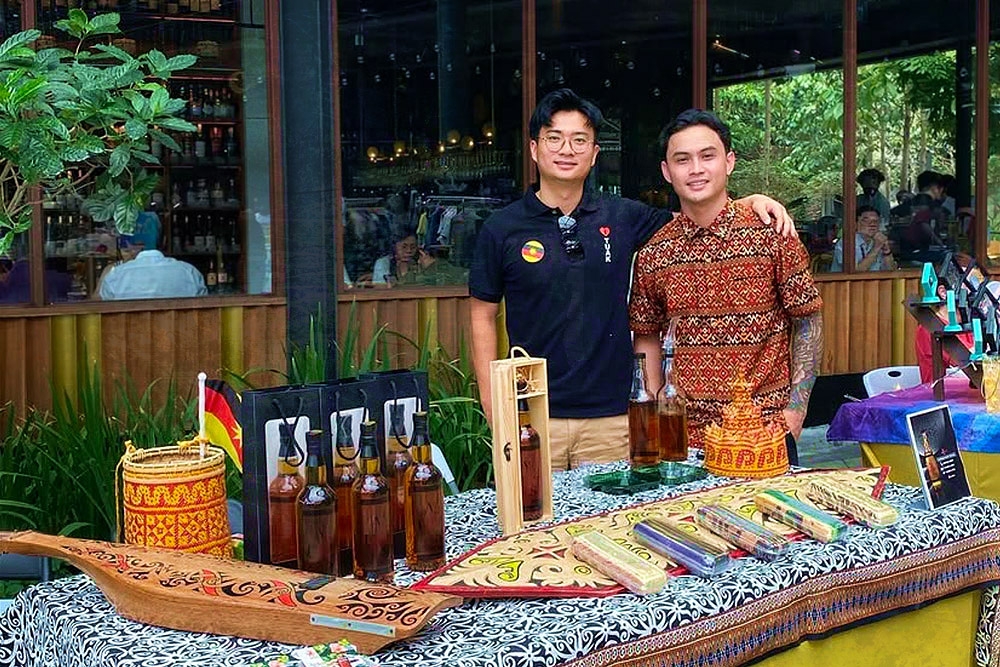
Ayden Chong (left) and Raffly Langi (right), two of the co-founders of Tuak Alus. — Picture courtesy of Tuak Alus
Chong recalls, “People are celebrating and enjoying a homemade drink called tuak, glutinous rice wine, a deep cultural heritage in Sarawak as a part of the tradition in the celebration.”
Alongside his co-founders Timothy and Raffly Langi (a former service engineer turned brewer after the pandemic upended his career), Chong began to ask a deceptively simple question: What if tuak could be more than a festive indulgence?
For the trio, tuak is about celebrating culture. Chong suggests: “What if it could also be a bridge – a conversation between generations, between the past and what’s yet to come?”
The name Tuak Alus is Iban for “smooth tuak,” and indeed, smoothness is the point – not just in mouthfeel, but in spirit. From fermentation techniques to flavour balance, everything is intentional.
Their range begins with three flavour profiles: their signature Tuak Laki (dry, bold and refined), Tuak Indu (sweetened with Sarawak’s smoky, caramel-like gula apong) and Tuak Pandan (herbaceous, nostalgic and the runaway favourite).
Chong explains, “It usually takes months and multiple tastings with our crew and regulars before a new flavour makes it to the bottle. Pandan is actually our bestseller so we decided to keep this on the menu.”
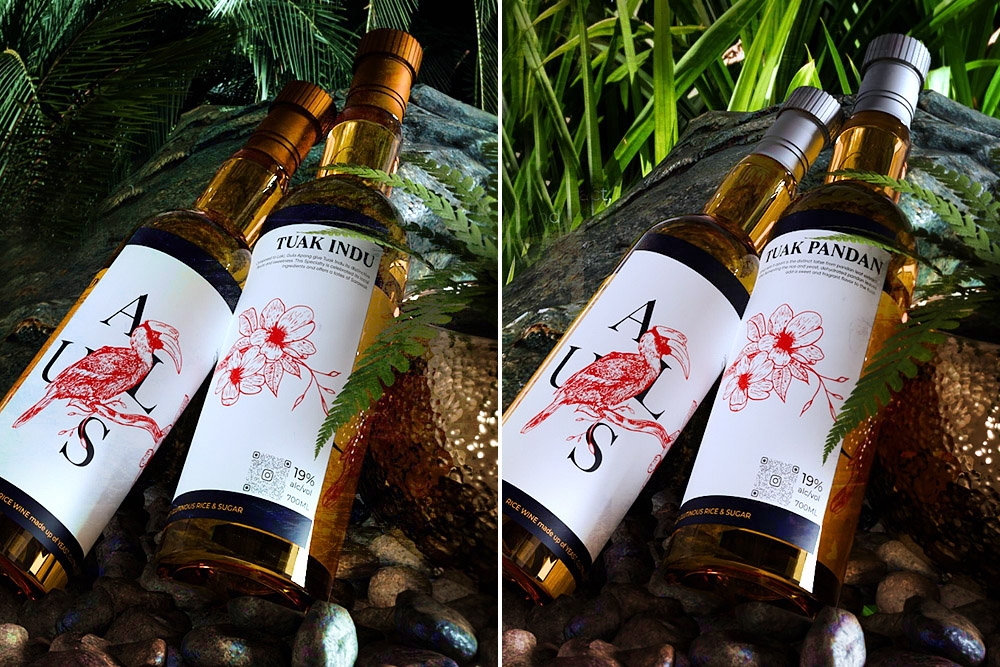
Besides their signature Tuak Laki, the two other flavours are Tuak Indu (left) and Tuak Pandan (right). — Picture courtesy of Tuak Alus
Occasional specials dabble in less expected territory: honey, sour plum, even coffee. But beneath the flavour profiles and branding is a deeper layer of craft.
Early on, Chong shares, the team struggled with the unpredictability of commercial yeast. It didn’t just affect the taste; it interfered with the soul of the drink.
So they turned to the elders. In Sarawak’s longhouses, they listened, learned, and eventually collaborated with Raffly’s aunt – herself a seasoned tuak maker – to craft a proprietary yeast blend.
Chong says, “Developing our own yeast strain gave us better control over fermentation, flavour profile, and alcohol levels. It makes Tuak Alus stand out with a distinctive smoothness and depth in layer.”
The resulting strain is soft but assertive, a structure on which everything else hangs: a dash of cinnamon here, a note of galangal there.
Tuak Alus aims to be a form of cultural advocacy. While events and pop-ups enable Tuak Alus to expand their reach through tastings, one can also expect Dayak motifs and indigenous rhythms. Even collaborations with Sarawakian chefs that turn tuak into an ingredient, not just a pairing.
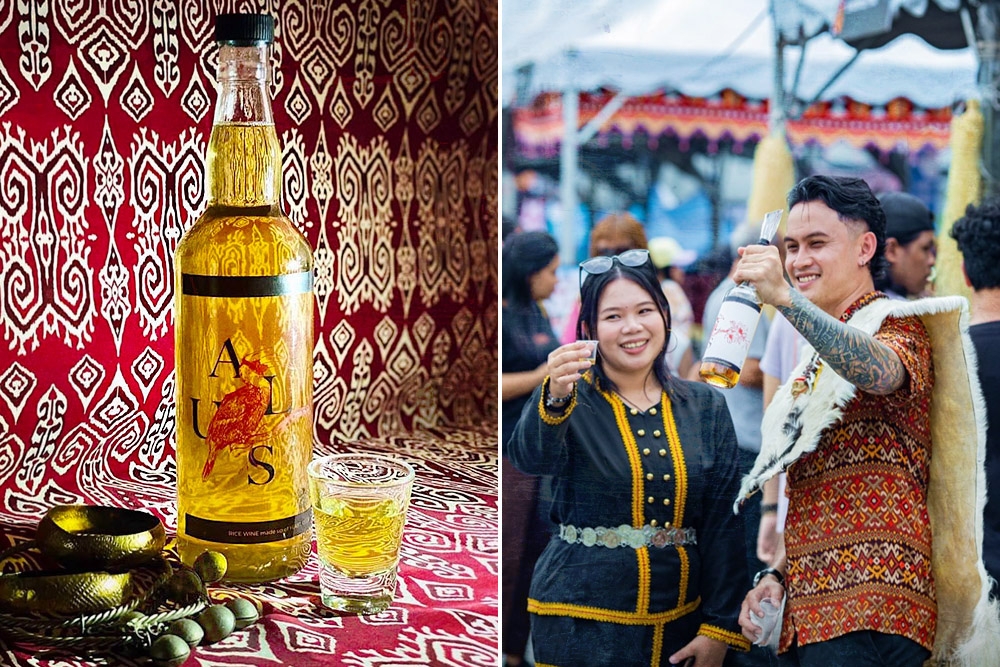
‘Tuak’ is about celebrating culture. — Picture courtesy of Tuak Alus
Chong stresses, “We always remind ourselves that we’re not just selling drinks. We are sharing a piece of Dayak cultural heritage. It’s important for us that people don’t just taste the product, but also understand where and how it came from.”
That emphasis on storytelling, on context, is perhaps what sets Tuak Alus apart from the parade of heritage-inspired products flooding artisanal shelves. It’s not just about identity – it’s about custodianship.
Though overseas interest has started to simmer – names like Australia, Japan, and Singapore come up – Chong and his team are in no rush to scale for the sake of scaling.
The focus remains hyper-local, he insists: “Through some pop-ups, we have gained love and confidence from both tourists around the world as well as locals. We are especially proud when locals (Sarawakian) appreciate and approve of our hard work.”
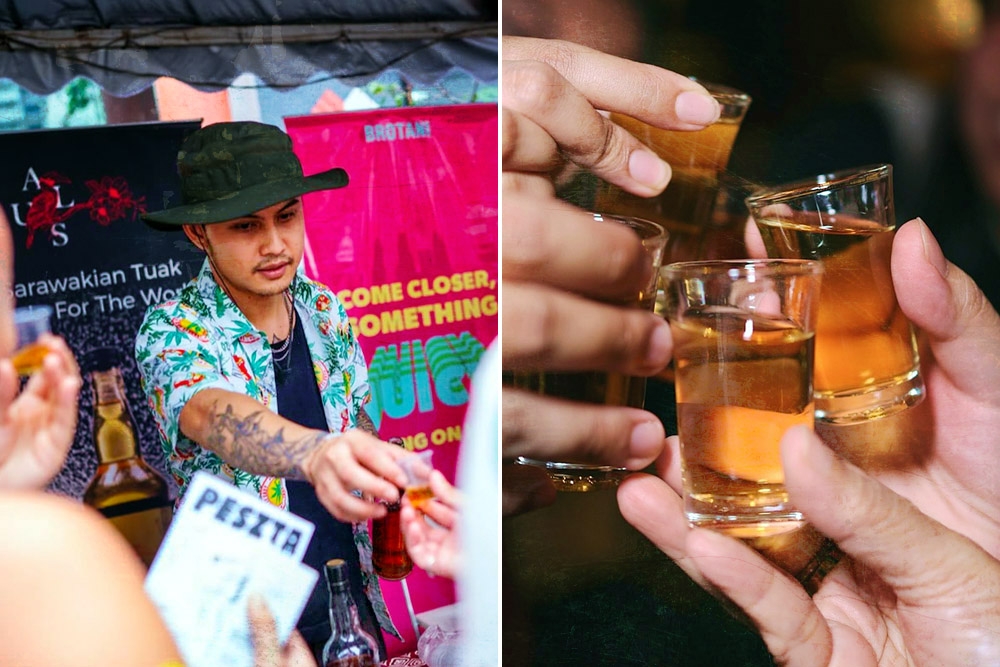
Events and pop-ups enable Tuak Alus to expand their reach through tastings. — Picture courtesy of Tuak Alus
Just this weekend alone, their schedule is packed with pop-ups: Foodie Tour V16 at United Point Residence, Kepong (August 8-10); Artisan Pastries x Coffee Week at Publika Mall (August 7-10); and Yanglokal Lifestyle Festival at Pingmin Hub, TRX (August 8-10).
In fact, you’re as likely to discover Tuak Alus in a KL café or a hipster barbershop as you are in a high-end restaurant. It’s a deliberate move, one that invites discovery rather than pushing hard.
And the long game? Not global domination, but cultural continuity.
Chong says, “We want Tuak Alus to become a platform where Bornean identity is preserved and celebrated. If Tuak Alus can open that door to inspire and empower others, that would be the ultimate win.”
This explains the brand’s slogan: “Sarawakian Tuak Made for the World”.
Here, it might be helpful to return to its name: alus doesn’t mean weak but refined and, perhaps, self-aware.
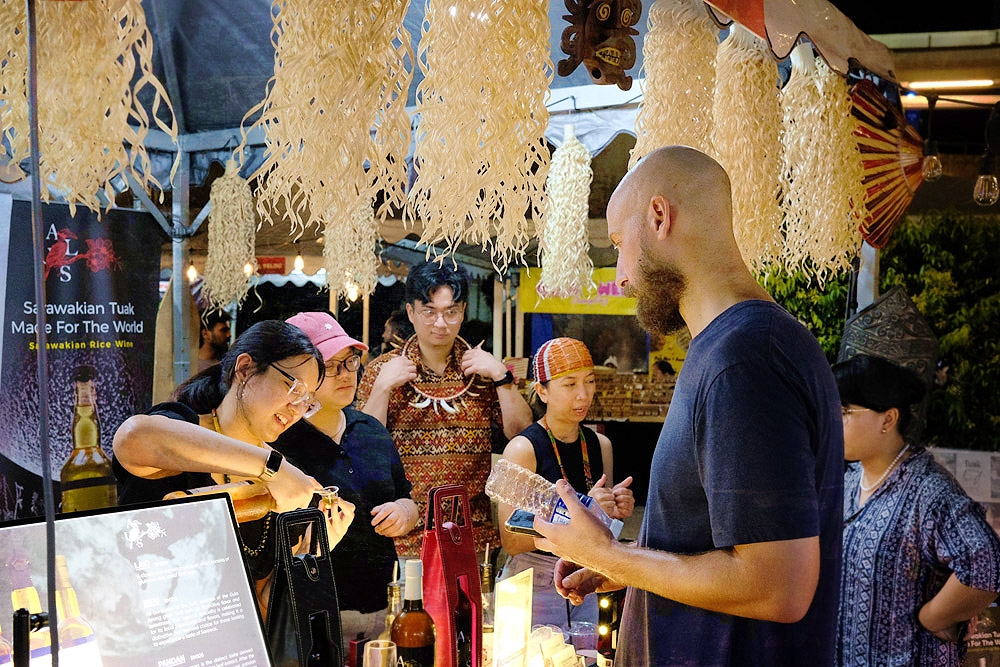
The brand’s slogan is ‘Sarawakian Tuak Made for the World’. — Picture courtesy of Tuak Alus
In each bottle, there’s more than a drink. There’s a handshake from the past, and a quiet legacy.
Tuak Alus


